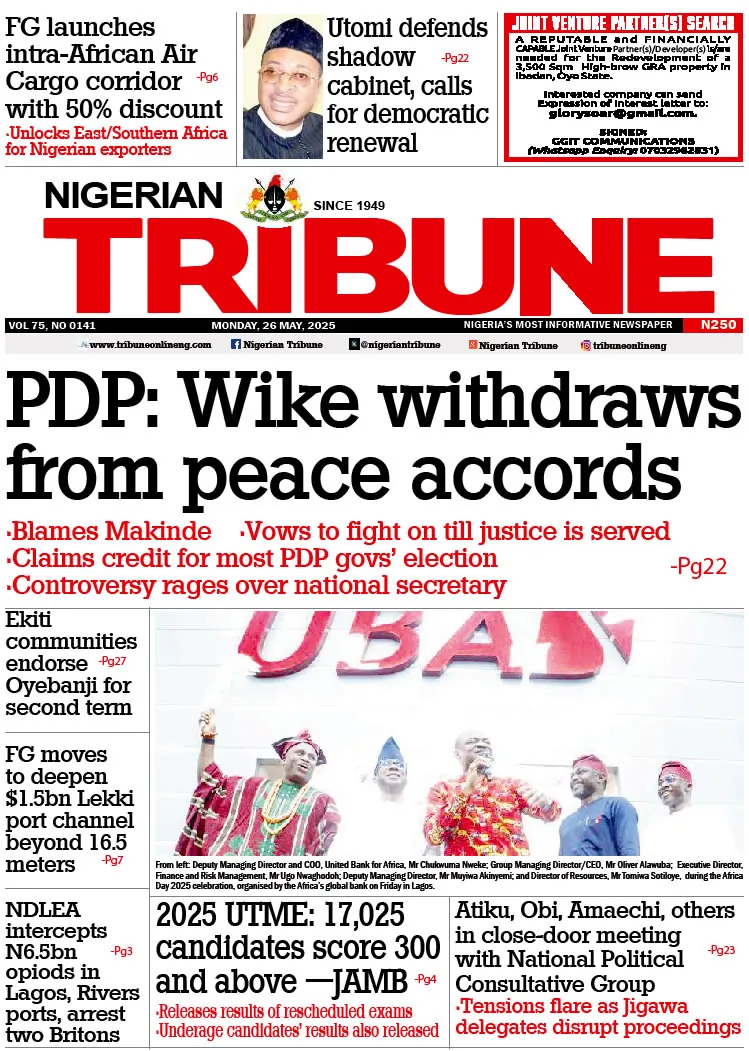The Government of Nigeria, through the Federal Ministry of Labour and Employment, along with the International Labour Organization (ILO), organized labour, and employers’ bodies, has jointly called on multinational enterprises (MNEs) operating in Nigeria to adopt responsible business conduct and uphold the principles of decent work, as the country advances key economic reforms under the Renewed Hope Agenda.
This call was made during the ongoing three-day high-level National Dialogue on “Promoting Sustainable and Responsible Business Practices for the Realization of Decent Work in Nigeria,” which began in Abuja on May 27, 2025. The event brought together representatives from government, trade unions, employers’ associations, national and multinational businesses, as well as international development partners.
Speaking at the opening, the Permanent Secretary of the Federal Ministry of Labour and Employment, Dr. Salihu A. Usman, emphasized that sustainable business practices are vital to achieving the economic transformation envisioned in President Bola Tinubu’s Renewed Hope Agenda. “Decent work is not merely an ILO concept; it is central to our national development aspirations,” he said. He noted that while globalization has opened new economic opportunities, the Nigerian labour market continues to face persistent vulnerabilities, including informality, unsafe work environments, gender inequality, and wage gaps.
He highlighted ongoing reforms within the Ministry to promote labour standards, including the finalization of the National World of Work Gender Policy, the launch of the Labour Employment and Empowerment Programme (LEEP), and renewed engagements with multinational companies under the ILO’s MNE Declaration.
ALSO READ: 2027: Dialogue with nonviolent pro-Biafra agitators or loose South-East, Ohanaeze tells Tinubu
Delivering a goodwill message on behalf of the ILO, Dr. Vanessa Phala, Director of the ILO Country Office for Nigeria, Ghana, Liberia, Sierra Leone, and ECOWAS Liaison, noted that responsible investment and trade are crucial for creating quality jobs and fostering inclusive development. “To fully leverage the African Continental Free Trade Area, businesses must adopt practices that respect social and environmental standards,” she stated, calling for greater alignment between the home and host countries of MNEs.
Organized labour also took a strong stance at the dialogue. In a fiery message, NLC President, Comrade Joe Ajaero, decried what he described as exploitative practices by some MNEs operating in Nigeria. “Multinational corporations have a special duty to lead by example. Yet, what we see are practices that would never be tolerated in their home countries,” he said, pointing to poor wages, unsafe factories, and environmental degradation. He called on the government to step up enforcement and urged the home countries of these corporations to hold them accountable for their actions abroad.
“There must be no double standards. The same respect given to workers in Europe, Asia, or North America must be extended to Nigerian workers,” Ajaero insisted. He demanded the immediate transmission of reviewed labour laws to the National Assembly and the ratification of ILO Convention 190 to tackle workplace violence and harassment.
Echoing similar sentiments, TUC President, Comrade (Engr.) Festus Osifo, underscored that decent work is not a cost but “an investment in human dignity, in productivity, in enterprise sustainability, and in national stability.” He called for immediate and actionable commitments from all stakeholders to ensure that fair wages, workplace safety, and social protections become non-negotiable in Nigeria’s labour landscape.
From the employers’ side, NECA Director-General, Mr. Adewale-Smatt Oyerinde, reaffirmed the private sector’s commitment to decent work and responsible business. “Our collaboration with the ILO and IOE reached over 160 business leaders last year alone,” he said, referencing NECA’s ongoing safety programmes, training workshops, and industrial dialogue platforms.
However, he acknowledged the need to address the vast informal sector and compliance challenges among SMEs. “The path forward requires concerted action… This dialogue must be more than another talking shop—it must mark the beginning of measurable, transformative progress,” Oyerinde stressed.
Also speaking, a representative of the International Organisation of Employers (IOE), Mr. Jason Pegat-Toquet, emphasized the importance of collaborative efforts by stakeholders to drive effective and impactful responsible business conduct and decent work in Nigeria. He also pledged his organization’s commitment.
Participants at the high-level dialogue have commenced a review of the 2023 Tripartite Roadmap for Sustainable Business Practices and emphasized the urgency of translating commitments into coordinated national actions. The ILO reaffirmed its support for Nigeria’s decent work agenda, with financial backing provided by the Government of France for the initiative.
Unanimously, stakeholders agreed that multinational enterprises must play a leading role in modeling fair labour practices and aligning their operations with international standards as Nigeria strives to reposition itself as a regional economic hub.






